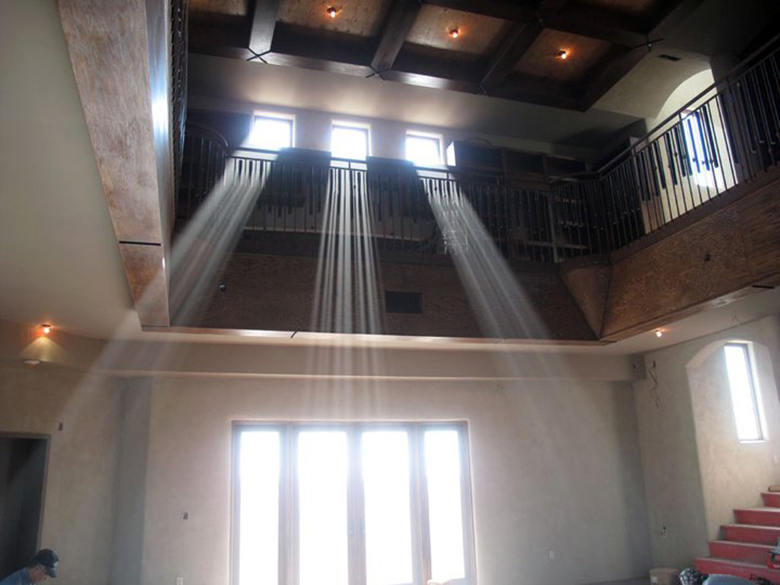We are feeling unsettled again.
And when I say we, I don’t mean me, I mean all of us.
Unsettled feelings are ominous.
We are acting as though we have heard the four notes of the Dies irae, that ominous musical phrase* that has signaled impending tragedy for the past 800 years. Being thus unsettled, we are making big decisions with too little information and those decisions will have consequences.
Unsettled lions like you and I are dangerous.
I’ll not speculate on the specific causes for our feelings of unsettlement, for I suspect we have many different reasons.
We were first unsettled on 9/11 when we saw the unhappenable happen.
We became unsettled again in 2008 when we were betrayed by Enron and Worldcom and Bernie Madoff and subprime mortgages.
I agree with what Leonard Pitts wrote in 2006.
“We often talk about Hurricane Katrina and 9/11 in terms of failures: failures of intelligence, failures of planning, failures of communication. But these catastrophes were first and foremost failures of imagination. Did we know that a major hurricane could destroy New Orleans? Yes: it was even part of the tour guides’ spiel. Did we know terrorists wanted to bring down the World Trade Center? Yes: they made a credible attempt in 1993. And what did we do with what we knew? Nothing. Some disasters, I think, are so big and so awful they are literally beyond our power to conceive. So, we dismiss them out of hand, retreat to the ‘knowledge’ that a thing can’t happen because, well, it just can’t.”
– Leonard Pitts, July 6, 2006
Leonard Pitts was obviously feeling unsettled when he wrote that.
We feel unsettled when our beliefs are crushed.
“Belief is about collecting ideas and investing in them. Faith is about having your ideas obliterated and having nothing to hang onto and trusting that it’s going to be all right anyway.”
– Barbara Hall
I appreciate Barbara Hall’s perspective.
Tragedy is the arrival of the unexpected bad.
Serendipity is the arrival of the unexpected good.
I say we should begin looking for the unexpected good.
What do you say?
To prepare for the unexpected bad is to be cautious, and there is nothing wrong with that. But to anticipate the unexpected good is to be hopeful. And that’s okay, too, isn’t it?
“If you want to believe in something, then believe in it. Just because something isn’t true, that’s no reason you can’t believe in it… Sometimes the things that may or may not be true are the things a [person] needs to believe in the most.”
– Hub McCann, Secondhand Lions
I write these words to you because I’m seeing solid people make dicey decisions because they are feeling unsettled. They are changing what they can because they are feeling frustrated by what they cannot change.
I believe in miracles, but most miracles happen slowly.
“There’s magic in the world. There is. People will tell you there isn’t—they just want you to get back to work and be quiet and not ask questions. These are people who don’t know where to look, or who were not blessed with eyes that could see magic. Magical eyes. If you have them, develop them.”
– Tennessee Williams
Do you still believe in miracles? Do you have eyes that can see sparkling magic in the air all around you?
Serendipity is the arrival of the unexpected good.
I think I hear it twinkling just ahead.
Roy H. Williams
 *Dies irae – I’ve placed a tremendously interesting 5-minute video on the second page of today’s rabbit hole that highlights some famous movie examples of the Dies irae. You’ll get what you need in the first couple of minutes. Can you afford to waste time with me this morning? I’ll see you there! Aroo, Indy Beagle.
*Dies irae – I’ve placed a tremendously interesting 5-minute video on the second page of today’s rabbit hole that highlights some famous movie examples of the Dies irae. You’ll get what you need in the first couple of minutes. Can you afford to waste time with me this morning? I’ll see you there! Aroo, Indy Beagle.
 Is there a backdoor shortcut to landing on the Inc. 5000 list of America’s fastest growing companies? What kinds of stories are the journalists at Inc. magazine interested in? Is there a chance they would write about you and your company? Those are just a few of the questions that roving reporter Rotbart puts to Inc. magazine’s Editor-in-Chief James Ledbetter on this week’s episode. Just go to MondayMorningRadio.com.
Is there a backdoor shortcut to landing on the Inc. 5000 list of America’s fastest growing companies? What kinds of stories are the journalists at Inc. magazine interested in? Is there a chance they would write about you and your company? Those are just a few of the questions that roving reporter Rotbart puts to Inc. magazine’s Editor-in-Chief James Ledbetter on this week’s episode. Just go to MondayMorningRadio.com.
